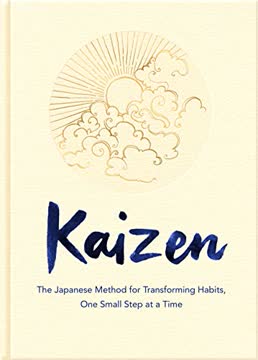Key Takeaways
1. Winners' brains are adaptable and resilient
"The winner's brain is not a static entity but a work in progress."
Neuroplasticity is key. The human brain has an incredible ability to adapt and change throughout life. This plasticity allows winners to continuously learn, grow, and overcome challenges.
- Examples of neuroplasticity:
- Learning new skills
- Recovering from brain injuries
- Developing new habits
Winners cultivate this adaptability by:
- Embracing lifelong learning
- Seeking out novel experiences
- Challenging themselves regularly
By understanding and leveraging brain plasticity, anyone can develop a winner's mindset and achieve greater success in various aspects of life.
2. Focus and attention are crucial for success
"Attention is the gateway to all thinking."
Laser-like focus matters. In our increasingly distracted world, the ability to concentrate on important tasks is a significant competitive advantage. Winners train their brains to maintain sustained attention and resist distractions.
Strategies to improve focus:
- Practice mindfulness meditation
- Use the Pomodoro Technique for time management
- Eliminate unnecessary distractions in your environment
By honing their focus, winners can:
- Complete tasks more efficiently
- Make better decisions
- Achieve flow states more easily
Developing strong attention skills is essential for anyone looking to excel in their personal and professional lives.
3. Memory systems can be optimized for peak performance
"Memory is not just about recalling facts; it's about making connections and seeing patterns."
Enhance memory strategically. Winners understand that a well-functioning memory is crucial for learning, problem-solving, and decision-making. They employ various techniques to optimize their memory systems.
Effective memory strategies:
- Use mnemonic devices
- Practice spaced repetition
- Create vivid mental imagery
Benefits of an optimized memory:
- Faster learning and skill acquisition
- Improved critical thinking abilities
- Enhanced creativity through pattern recognition
By treating memory as a skill to be developed rather than a fixed trait, winners gain a significant edge in their pursuits.
4. Motivation is key to achieving long-term goals
"Motivation is not just about desire; it's about turning desire into action."
Harness intrinsic drive. Winners cultivate deep, internal motivation that sustains them through challenges and setbacks. They understand that motivation is not a constant state but a skill to be developed and maintained.
Techniques to boost motivation:
- Set clear, meaningful goals
- Break large objectives into smaller, manageable tasks
- Celebrate small victories along the way
The impact of strong motivation:
- Increased perseverance in face of obstacles
- Higher levels of productivity and efficiency
- Greater overall life satisfaction
By mastering the art of self-motivation, winners ensure they have the fuel needed to pursue their ambitions relentlessly.
5. Emotional intelligence enhances decision-making
"Emotions are not obstacles to rational thought, but essential components of it."
Leverage emotions wisely. Winners recognize the importance of emotional intelligence in navigating complex social situations and making sound decisions. They develop the ability to recognize, understand, and manage their own emotions and those of others.
Key aspects of emotional intelligence:
- Self-awareness
- Self-regulation
- Empathy
- Social skills
Benefits of high emotional intelligence:
- Improved relationships and communication
- Better conflict resolution abilities
- Enhanced leadership skills
By cultivating emotional intelligence, winners can make more balanced decisions and build stronger, more effective relationships in both personal and professional spheres.
6. Proactivity and initiative drive winning behaviors
"Winners don't wait for opportunities; they create them."
Take charge of your destiny. Successful individuals understand that waiting for the perfect moment or for someone else to take action often leads to missed opportunities. They cultivate a proactive mindset and take initiative to shape their circumstances.
Ways to develop proactivity:
- Anticipate future challenges and prepare for them
- Set personal goals and deadlines
- Take calculated risks
The impact of being proactive:
- Increased control over one's life and career
- Higher levels of achievement and success
- Greater resilience in the face of setbacks
By embracing a proactive approach, winners position themselves to seize opportunities and overcome obstacles more effectively than their passive counterparts.
7. Self-awareness is fundamental to personal growth
"Knowing yourself is the beginning of all wisdom."
Understand your inner workings. Winners prioritize self-awareness as a cornerstone of personal development. They regularly reflect on their thoughts, emotions, behaviors, and motivations to gain insights into their strengths and weaknesses.
Methods to increase self-awareness:
- Practice mindfulness and meditation
- Keep a journal for self-reflection
- Seek feedback from trusted friends and mentors
Benefits of heightened self-awareness:
- Improved decision-making aligned with personal values
- Enhanced ability to manage stress and emotions
- More authentic relationships and interactions
By cultivating a deep understanding of themselves, winners can make more intentional choices and continuously evolve towards their ideal selves.
8. Creativity and innovation fuel success
"Creativity is intelligence having fun."
Embrace novel thinking. Winners recognize that creativity and innovation are essential for standing out in a competitive world. They actively cultivate their creative abilities and seek out new perspectives and ideas.
Strategies to boost creativity:
- Engage in diverse experiences and learning
- Practice brainstorming and lateral thinking techniques
- Collaborate with people from different backgrounds
The impact of fostering creativity:
- Unique problem-solving approaches
- Development of innovative products or services
- Ability to adapt to changing environments
By nurturing their creative faculties, winners can generate fresh ideas, overcome challenges in novel ways, and drive innovation in their fields.
9. Stress management is essential for maintaining a winner's mindset
"It's not stress that kills us, it's our reaction to it."
Master stress response. Winners understand that stress is an inevitable part of life, but they develop effective strategies to manage and even harness it for positive outcomes. They view stress as a challenge rather than a threat.
Effective stress management techniques:
- Practice regular exercise and physical activity
- Utilize relaxation methods like deep breathing or progressive muscle relaxation
- Maintain a healthy work-life balance
Benefits of good stress management:
- Improved mental and physical health
- Enhanced resilience and adaptability
- Increased productivity and focus
By learning to manage stress effectively, winners can maintain their peak performance even in high-pressure situations and avoid burnout in the long run.
Last updated:
FAQ
1. What’s "The Winner’s Brain" by Jeff Brown about?
- Science of Success: The book explores how neuroscience and psychology explain the habits and strategies of highly successful people, termed as having a "Winner’s Brain."
- Brain-Based Strategies: It presents eight key "Win Factors" and five "BrainPower Tools" that can be developed to optimize brain function for achievement.
- Real-Life Examples: The authors use stories from diverse high achievers—athletes, artists, business leaders—to illustrate how these brain strategies work in practice.
- Practical Application: The book offers actionable advice, exercises, and self-assessments to help readers rewire their own brains for greater success.
2. Why should I read "The Winner’s Brain" by Jeff Brown?
- Evidence-Based Approach: The book is grounded in the latest neuroscience and psychological research, making its advice credible and actionable.
- Universal Relevance: Its strategies are designed for anyone seeking personal or professional growth, regardless of background or starting point.
- Focus on Change: It dispels the myth that success is only for the innately talented or lucky, emphasizing that anyone can develop a Winner’s Brain.
- Practical Tools: Readers gain access to quizzes, exercises, and real-world tactics to immediately start improving their brain’s performance.
3. What are the key takeaways from "The Winner’s Brain"?
- Success Is Trainable: High achievement is less about IQ or luck and more about specific, learnable brain strategies and habits.
- Eight Win Factors: Self-Awareness, Motivation, Focus, Emotional Balance, Memory, Resilience, Adaptability, and Brain Care are the pillars of a Winner’s Brain.
- Five BrainPower Tools: Opportunity Radar, Optimal Risk Gauge, Goal Laser, Effort Accelerator, and Talent Meter are essential cognitive skills for success.
- Neuroplasticity Matters: The brain can be reshaped at any age through deliberate practice, mindset shifts, and healthy habits.
4. What is the definition of a "Winner’s Brain" according to Jeff Brown?
- Distinct Brain Function: A Winner’s Brain operates differently from the average brain, showing greater efficiency, adaptability, and focus.
- Not Born, But Built: It’s not an inborn trait; rather, it’s developed through conscious strategies and repeated behaviors.
- Enjoys the Journey: Winners not only achieve their goals but also find fulfillment in the process and often contribute positively to others.
- Measurable Differences: Advances in brain imaging show that Winner’s Brains have unique patterns of neural activity and structure.
5. What are the "BrainPower Tools" in "The Winner’s Brain" and how do they work?
- Opportunity Radar: The ability to spot and seize opportunities, even when disguised as problems or setbacks.
- Optimal Risk Gauge: Skill in evaluating risks, knowing when to take bold action and when to hold back.
- Goal Laser: The capacity to maintain focus on long-term objectives, resisting distractions and persevering through challenges.
- Effort Accelerator: The drive to sustain effort and motivation, even during mundane or difficult tasks.
- Talent Meter: Accurate self-assessment of strengths and weaknesses, enabling targeted improvement and leveraging of abilities.
6. What are the eight "Win Factors" in "The Winner’s Brain" and why are they important?
- Self-Awareness: Understanding oneself, including strengths, weaknesses, and how one is perceived by others.
- Motivation: The internal drive to pursue and achieve meaningful goals, even in the face of obstacles.
- Focus: The ability to concentrate attention, filter distractions, and prioritize effectively.
- Emotional Balance: Managing emotions constructively, using them to enhance rather than hinder performance.
- Memory: Leveraging past experiences and knowledge to inform future decisions and actions.
- Resilience: Bouncing back from setbacks, reframing failures as opportunities for growth.
- Adaptability: Embracing change and continuously reshaping the brain and behavior for ongoing success.
- Brain Care: Maintaining brain health through exercise, nutrition, sleep, and mental stimulation.
7. How does "The Winner’s Brain" explain the role of neuroplasticity in achieving success?
- Brain Is Malleable: The book emphasizes that the brain can change its structure and function throughout life, not just in childhood.
- Deliberate Practice: Repeated, focused practice of new skills or mindsets leads to physical changes in the brain’s neural pathways.
- Real-World Examples: London cab drivers, musicians, and others are shown to have measurable brain changes due to their training and experience.
- Empowerment: Understanding neuroplasticity gives readers the confidence that they can improve their abilities at any age.
8. What practical strategies does "The Winner’s Brain" offer for developing a Winner’s Brain?
- Self-Assessment: Tools like the Winner’s Profile Quiz help identify current strengths and areas for growth.
- Brainstorms: The book provides actionable exercises—such as mindfulness, visualization, and feedback-seeking—to build Win Factors.
- Habit Formation: Emphasizes the importance of consistent practice, scaffolding complex skills, and breaking tasks into manageable steps.
- Lifestyle Changes: Recommends physical activity, healthy eating, adequate sleep, and mental challenges to support brain health.
9. How does "The Winner’s Brain" address common obstacles like procrastination, failure, and lack of motivation?
- Concrete Techniques: Offers methods like breaking tasks into small steps, reframing failures, and using short-term rewards to overcome procrastination.
- Resilience Training: Encourages viewing setbacks as learning opportunities and finding role models who exemplify bouncing back.
- Motivation Cycles: Explains the brain’s "map, rev, drive" process for sustaining motivation and how to leverage both intrinsic and extrinsic rewards.
- Emotional Regulation: Teaches strategies for managing negative emotions and maintaining focus under stress.
10. What scientific research and real-life stories does "The Winner’s Brain" use to support its advice?
- Neuroscience Studies: Cites fMRI, EEG, and other brain imaging research to show how different brain regions contribute to success traits.
- Psychological Experiments: References studies on motivation, memory, attention, and resilience to back up practical recommendations.
- Interviews with Winners: Features stories from Olympic athletes, artists, business leaders, and everyday people who exemplify the Win Factors.
- Historical Cases: Discusses famous neuroscience cases (e.g., Phineas Gage, Patient H.M.) to illustrate how brain changes affect behavior.
11. What are the best quotes from "The Winner’s Brain" and what do they mean?
- “You can think your way to success.” — Emphasizes the power of intentional thought and mental strategies in achieving goals.
- “Winners are not born, they are made.” — Reinforces the book’s core message that success is accessible to anyone willing to develop the right habits.
- “The brain is constantly revising itself throughout a lifetime.” — Highlights the ongoing potential for growth and change at any age.
- “Resilience is about getting up one more time than anyone else.” — Underlines the importance of persistence and learning from setbacks.
12. How can I start applying the lessons from "The Winner’s Brain" by Jeff Brown in my own life?
- Take the Winner’s Profile Quiz: Assess your current BrainPower Tools and identify areas for improvement.
- Choose One Win Factor: Focus on developing one trait at a time, such as Motivation or Focus, using the book’s exercises.
- Practice Brain Care: Incorporate regular exercise, healthy eating, sufficient sleep, and mental challenges into your routine.
- Reflect and Adjust: Regularly seek feedback, track your progress, and be willing to adapt your strategies as you grow.
Review Summary
The Winner's Brain receives mixed reviews. Many readers find it informative and motivating, praising its blend of neuroscience and self-help advice. They appreciate the practical strategies for developing a successful mindset. However, some critics argue the book lacks originality and depth, repeating concepts from other self-help literature. The scientific explanations are viewed as either enlightening or overly complex, depending on the reader. Overall, the book is seen as a decent introduction to brain optimization techniques, though opinions vary on its effectiveness and uniqueness.
Similar Books
Download PDF
Download EPUB
.epub digital book format is ideal for reading ebooks on phones, tablets, and e-readers.












